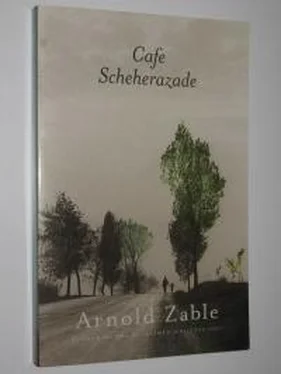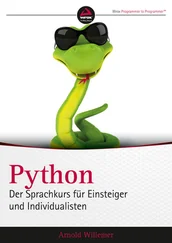Arnold Zable - Cafe Scheherazade
Здесь есть возможность читать онлайн «Arnold Zable - Cafe Scheherazade» весь текст электронной книги совершенно бесплатно (целиком полную версию без сокращений). В некоторых случаях можно слушать аудио, скачать через торрент в формате fb2 и присутствует краткое содержание. Город: Melbourne, Год выпуска: 2001, Издательство: Text Publishing Company, Жанр: Проза, на английском языке. Описание произведения, (предисловие) а так же отзывы посетителей доступны на портале библиотеки ЛибКат.
- Название:Cafe Scheherazade
- Автор:
- Издательство:Text Publishing Company
- Жанр:
- Год:2001
- Город:Melbourne
- ISBN:нет данных
- Рейтинг книги:4 / 5. Голосов: 1
-
Избранное:Добавить в избранное
- Отзывы:
-
Ваша оценка:
- 80
- 1
- 2
- 3
- 4
- 5
Cafe Scheherazade: краткое содержание, описание и аннотация
Предлагаем к чтению аннотацию, описание, краткое содержание или предисловие (зависит от того, что написал сам автор книги «Cafe Scheherazade»). Если вы не нашли необходимую информацию о книге — напишите в комментариях, мы постараемся отыскать её.
Cafe Scheherazade — читать онлайн бесплатно полную книгу (весь текст) целиком
Ниже представлен текст книги, разбитый по страницам. Система сохранения места последней прочитанной страницы, позволяет с удобством читать онлайн бесплатно книгу «Cafe Scheherazade», без необходимости каждый раз заново искать на чём Вы остановились. Поставьте закладку, и сможете в любой момент перейти на страницу, на которой закончили чтение.
Интервал:
Закладка:
Oh come now, quiet evening, And rock the fields to sleep, I sing you a song of praise, Oh silent evening of mine.
73
How still it has become, The night has finally come, The little white birch tree, Remains wrapped in darkness, alone.
February in Melbourne can be the wildest month. A hot northerly wind is gusting. It raises dust from the pavements, and whips sand across the foreshore. It caps swirling wavelets with foam, and spins buoys, yellow and red, into twirling tops. It lifts late summer leaves and pine needles from the gutters. It upturns outdoor tables and chairs, and hurls beach umbrellas from their moorings.
A gang of teenage boys huddle about their ghetto-blasters on a strip of grass above the foreshore. A cormorant struggles to stay aloft. Bathers lie spreadeagled in the shallows. An addict, lost in a heroin fix, dances beneath a palm, while her partner sways in her shadow, a beer can in each hand.
And Laizer walks the usual route, from his St Kilda flat to the cafe. His face is flushed. His nerves are frayed. The upper buttons on his shirt are undone. His shock of thinning white chest-hair bristles in the wind.
He moves from the foreshore beyond The Esplanade, to Shakespeare
Grove; rounds the corner into Acland Street. He approaches the two palms, on either side of the road, recently planted, fully grown. They are two sentinels, keeping guard, he remarks to himself, aloud. He has almost reached his goal. The neon oasis is drawing him on. He is running as he bursts through Scheherazade's doors.
74
"You see, Martin, you no-good scribbler?" he says, breathless, as he sits down beside me. "Listen to those winds. Even here, in the golden land, we are just a breath away from chaos."
Laizer is nervous. He cannot sit still. He stands up, paces about, returns to his seat. It will take time for him to settle down. I know the pattern well, his approach and retreat, his desire to withdraw, his conflicting need to tell. But today, more than a month since I last saw him, the contrasts are harsher than usual. The north winds are on the prowl. They are our sirocco.
Our hamsin. The closest our city possesses to a desert wind.
The airconditioner hums. The cool has set in. Laizer's nerves are settling. He is calm enough to sit still; and to smile. Laizer is as warm as the north winds, but far more generous. Once a friend, he will remain a friend. A khaver. A loyal companion. After all, I have accompanied him on quite a journey now and, for this moment, at least, we are both no-good bastards taking shelter from the same winds.
Laizer describes northerly winds of a far different kind. They whirled like dervishes, in savage tornadoes of snow. They hurled hailstones into the eyes, and gnawed at the nerves with ice.
"Martin, you are a writer, but words cannot capture it. It is impossible. You feel nature lashing you, laughing at you. You become a nothing. Your body is a mere bag of bones."
Laizer recalls it as a time of taunting beauty, the twenty months he worked on the ancient trading route called the Vizir.
75
For over a century the route had snaked, twenty metres wide, through the forests of western Siberia, hundreds of kilometres east, from Serov to Tobolsk.
In summer the path was submerged in impassable bogs and swamps, littered with fallen trees and encroaching forest. Russian merchants travelled the Vizir in winter. Horse-drawn sleds conveyed their merchandise in search of "the easterners", hunting tribes of the taiga who exchanged furs for axes and ammunition, animal skins for vodka and tobacco. The sleds returned with the raw coats of arctic reindeer and silver foxes, polar bears and
Siberian tigers.
Laizer delights in this history. The terrain was so difficult that the route was broken every thirty kilometres by stations where the merchants obtained fresh supplies and horses. Over time, the stations became hamlets. Each hamlet expanded into networks of extended families. When the children intermarried it was the custom for the woman to live in her husband's hamlet. The hamlets grew into villages that bore the name of the principal family. After the revolution the villages had become kolkhozes, co-operatives that retained the family name; and life continued, as it had, for many generations.
For those twenty months, Laizer moved east along the trading route with his work battalion, constructing towers for the Red
Army. The towers were to be used to survey the terrain and determine the impacts of climatic change. There were fourteen workers in all: Russians and Ukrainians, Gypsies and Chechens, an
Ingush and an Armenian; a disparate 76 band welded by fate into a close-knit gang of frontier men.
They built makeshift roads. They dragged sleds weighed down with equipment through mosquito-infested swamps. They covered the swamps with logs to ease the way. They axed the timber into precise lengths, ready to assemble into the towers' pyramidal shape. They cut down ageing trees with which they built shelters over the ice. They slept on branches of silver birch. They spread layers of soil and moss for insulation. A permanent fire burnt at the entrance. In summer the fire smoked out mosquitoes; and in winter it provided warmth and inspired stories.
What else was there to do on long winter nights when the sun set within hours of rising? The labourers exchanged tales by a fire accompanied by the wailing of a wolf, the hoot of an owl, a sudden gust of wind. They talked about their years in prison camps, their children, wives, lovers and squandered lives. They were the heirs of a revolution that had promised so much, yet delivered so little. They had once imagined future riches, but now they lived for each passing day.
Yet there were moments which caught them unawares, and overpowered them with their beauty. More than half a century later Laizer was to recall such a moment with hallucinatory clarity.
At dawn, on a winter's day, while on the way to work, he had come across a village suspended from the sky. Snow had fallen through a breezeless night. It clung to the eyebrows and eyelashes, to his beard and rotting gloves. It contoured the trees, 77 the cottage chimneys, the village wells and angled roofs. It engulfed every protrusion: a solitary nail, a leaning shovel, an abandoned broom.
Frozen particles floated about him, alight against a crimson sun.
A strand of smoke rose from each chimney, pencil-thin, into a rouged mist. And, on these glowing strands, the village seemed to hang between the reddened sky and snow-clad earth.
Laizer knew it was an illusion, but he felt elated nevertheless.
He could hear the faint song of creation, or so he allowed himself to believe. This is how things really are, it seemed to murmur. This is the perfection that underlies the chaos. This is what lies beyond the veil of suffering, beyond the betrayal you call life.
The melody ceased. The sun broke through. The village sank back into the white. Laizer stood for a moment longer, reluctant to let go; and was overcome by a profound sadness. He looked down at his ragged clothes; and felt the pangs of hunger returning, the frost flowing back into his bones.
The beauty of that image could not save him. It could not take away the pain of longing, or restore him to his loved ones. The contrast was cruel: so much beauty set against the reality of his enslavement. The universe was, after all, detached. It had lifted him so high, only to cast him back into the cold; and there was no lasting support that could cushion the fall.
Laizer turned and resumed his reluctant journey, through
78 the forests, back to his work brigade, to another day of labour in a Siberian glade.
Laizer wipes the perspiration from his brow. He finishes his coffee, and orders another. He stirs in a teaspoon of sugar. A second. And a third. His forehead is creased in concentration. On his face there is a childlike smile, a look of wonder. He is looking downwards, at his hands, which are spread before him on the table. He is gripped by the rotation of northern skies, and the turning of seasons long past.
Читать дальшеИнтервал:
Закладка:
Похожие книги на «Cafe Scheherazade»
Представляем Вашему вниманию похожие книги на «Cafe Scheherazade» списком для выбора. Мы отобрали схожую по названию и смыслу литературу в надежде предоставить читателям больше вариантов отыскать новые, интересные, ещё непрочитанные произведения.
Обсуждение, отзывы о книге «Cafe Scheherazade» и просто собственные мнения читателей. Оставьте ваши комментарии, напишите, что Вы думаете о произведении, его смысле или главных героях. Укажите что конкретно понравилось, а что нет, и почему Вы так считаете.












